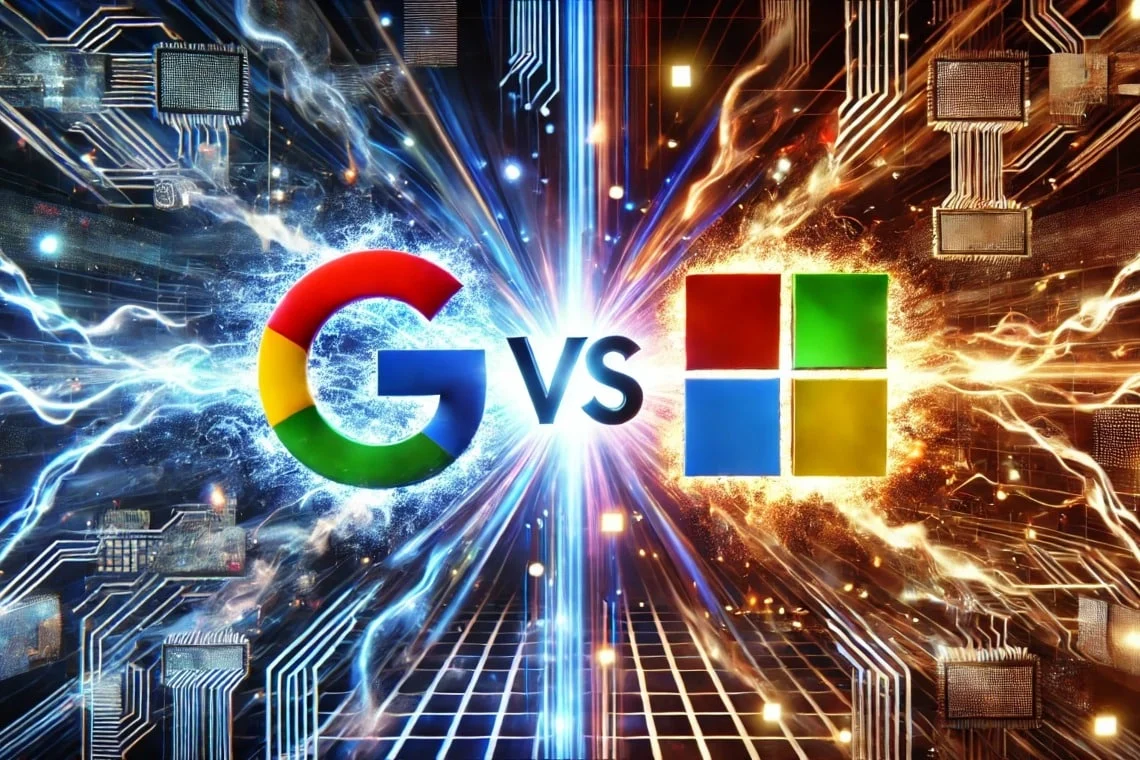Microsoft and Google Battle for AI Dominance
The AI rivalry between Microsoft and Google has intensified in 2025, with both tech giants making significant strides to lead the artificial intelligence landscape.
🔵 Microsoft: Strategic Investments and AI Integration
Microsoft has deepened its collaboration with OpenAI, integrating AI capabilities across its product suite. The company introduced Copilot, embedding AI into Microsoft 365 applications like Word, Excel, and Outlook, enhancing productivity through features like real-time content generation and data analysis .
To support these advancements, Microsoft announced a substantial investment in AI infrastructure, planning to allocate up to $80 billion in fiscal year 2025 . This move underscores Microsoft’s commitment to maintaining a competitive edge in AI development.New York Post
🔴 Google: Advancements with Gemini and AI Search
Google has responded with significant developments, notably the launch of its Gemini AI model. Gemini is a multimodal language model capable of processing text, images, audio, and code simultaneously, aiming to surpass existing models like GPT-4 .Wikipedia
In addition to Gemini, Google is revamping its search engine to incorporate AI-driven features, aiming to provide more intuitive and comprehensive search results. CEO Sundar Pichai emphasized that Google Search will “change profoundly” in 2025, leveraging AI to enhance user experience .
📊 Market Implications and Competitive Landscape
The aggressive AI strategies of both companies have significant market implications. Microsoft’s integration of AI into its products has been well-received, while Google’s advancements with Gemini aim to reclaim its leadership in AI innovation.
However, the rise of AI tools like ChatGPT and Perplexity has introduced new competition, challenging Google’s dominance in search and prompting both companies to accelerate their AI initiatives .
🧠 Conclusion
As Microsoft and Google continue to invest heavily in AI, the competition is driving rapid advancements in technology. Users can expect more sophisticated and integrated AI features across various platforms, reshaping how we interact with digital tools and access information

